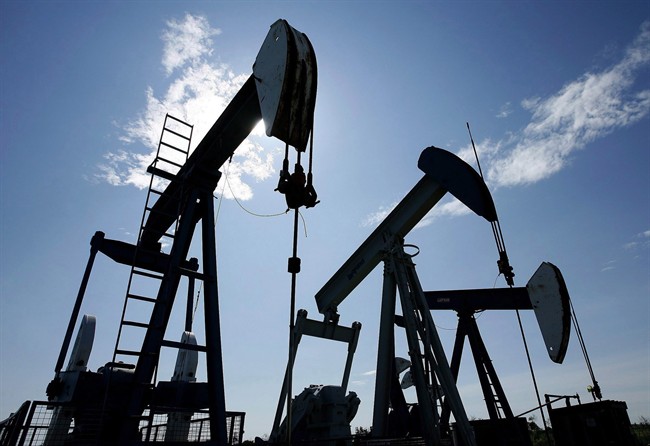Canadians are feeling much better about the economy in the latter half of 2016, a new poll suggests, but confidence remains low in economically hard-hit Alberta.

The survey, conducted by Ipsos on behalf of Global News between Nov. 25 and Dec. 9, reveals that overall, confidence has increased dramatically since February 2016, when just 34 per cent of Canadians felt the economy was in good shape. That was the lowest rating in two decades.
READ MORE: Trudeau government begins to (slightly) lose its appeal, poll suggests
The figure now sits at 61 per cent, nearly doubling in less than a year. Of that 61 per cent, 13 per cent rated the economic situation as “very good,” while 49 per cent said it was “somewhat good.”
Mike Colledge, president of Ipsos Public Affairs, noted that those numbers are still well short of the high confidence levels (80 per cent or more) seen before the recession of 2008-2009.
“Like the stock market, public confidence goes up and down,” Colledge explained.
“I think the further away we’ve gotten from 2008 and 2009, Canadians have started to almost accept that the growth rates we had pre-recession aren’t coming back, and they’ve settled into a new normal.”
WATCH: Trudeau talks pipelines with Global B.C.’s Chris Gailus

Canadians are “real-time focused” when it comes to how they perceive the economy, he added, no matter their income level. Rather than looking at big-picture elements like the Liberal government’s infrastructure stimulus plan, they tend to measure the health of the country’s finances based on their own pocketbooks.
“Low interest rates are a big boon for today,” Colledge noted.
“People perceive themselves to have more buying power than they do, which is why we have record levels of household debt right now.”
Different story in Alberta
While economic confidence may be increasing across the country, the story in Alberta is far less rosy. Among respondents living there, just 36 per cent said they would describe the national economy as doing well.
READ MORE: Alberta pushes to diversify oil-laden economy
Comparatively, a majority of residents of British Columbia (59 per cent), Atlantic Canada (62 per cent), Ontario (65 per cent), Quebec (66 per cent), and Saskatchewan/Manitoba (66 per cent) were confident in the health of the economy.
“The 2015 decline in oil prices has really sunk in,” Colledge said of Alberta’s pessimism.
“Albertans, more so than some other provinces, define themselves by the oil industry. I know it’s an important economic contributor across the country … but Albertans really see the connection (to oil) on a personal level and they see it everywhere they go.”
Local picture
Perceptions of local economies among respondents also tended to be comparatively bleaker, the poll revealed. No region cracked the 50 per cent mark when it came to local economic confidence.
Only a quarter of Albertans say their local economy is doing well (which is still a 12-point improvement from the figure at the end of 2015). In the Prairies it was 34 per cent, in Atlantic Canada 36 per cent, in B.C. 42 per cent, in Ontario 45 per cent and in Quebec 48 per cent.
WATCH: Vancouver police say Alberta economy one reason for spike in crime

According to Colledge, Canadians may feel more optimistic about the national picture because they see banks and businesses doing well, new investments from Ottawa, and job announcements happening elsewhere. But at home, the reality may be different.
“They see their neighbours who are struggling, they see unemployment in their neighbourhood.”
Moving into 2017, Colledge said the federal government is probably hoping to see the confidence indicators increase both nationally at at the local level.
“From a government standpoint, a populace that’s happy is more likely to give you leeway to do other things whether they’re social or economic,” he said.
This poll was conducted between Nov. 25 and Dec. 9, 2016, with a sample of 1,004 Canadians from Ipsos’ online panel who were interviewed online. In this case, the poll is accurate to within +/ – 3.5 percentage points, 19 times out of 20, had all Canadian adults been polled. All sample surveys and polls may be subject to other sources of error, including, but not limited to coverage error, and measurement error.


Comments